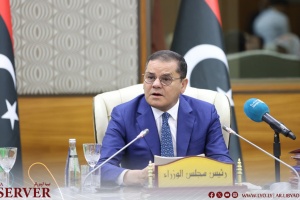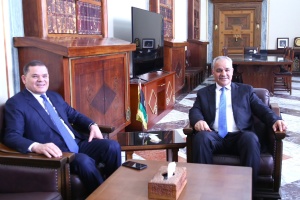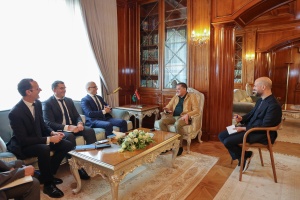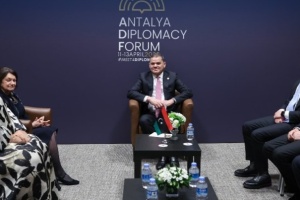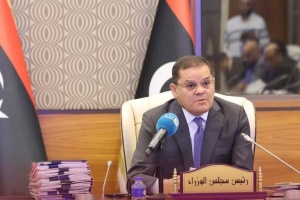The Head of the Government of National Unity, Abdul Hamid Dbeibah, has reaffirmed that “his government will not leave until elections are held and the Libyan people choose who will lead them.”
In his speech at the Tripoli Government Communication Forum, as part of the Tripoli Media Days, Dbeibah reaffirmed his support for elections based on fair election laws.
He pointed out that there is a party in the country that wants the return of the military rule, considering that the laws produced by 6+6 Committee were tailored for specific people.
Regarding his candidacy for the upcoming presidential elections, Dbeibah said, “He has not yet decided on that prospect” and that he “does not object to Saif Gaddafi’s candidacy unless there are legal obstacles.”
On the Derna disaster file, Dbeibah revealed that all the support and aid that reached the stricken city came from the Government of National Unity.
Dbeibah considered that his government made several concessions during the Derna disaster as a special human condition override any polarization.
Regarding his government’s relationship with the Governor of the Central Bank of Libya, Al-Siddiq Al-Kabir, and their problems, Dbeibah said, “I respect Al-Siddiq Al-Kabir, who was involved in a traffic accident earlier, which led to his absence, and this matter caused confusion.”
"Governor Al-Siddiq Al-Kabir returned to carry out his duties today after the accident, and we are spending according to the budget allocated by the bank." Dbeibah added.
He denied everything that was being circulated about a dispute between the government and the Central Bank, stressing that these reports were nothing but “Facebook rumors.”
Dbeibah, revealed that the parallel government affiliated with the Tobruk-based Parliament borrowed 15 billion dinars from commercial banks and accessed the black market; causing spike in the dollar exchange rate.
Dbeibah added that “The parallel government’s spending mechanism is in violation, and destabilized the Libyan dinar,” stressing that the judicial and supervisory authorities were informed of this.
Concerning other issues, Dbeibah denied knowledge of his former Foreign Minister, Najla Al-Manqoush, meeting with the Israeli occupation Foreign Minister in Rome, describing the meeting as accidental.
However, he described Najla Al-Mangoush as a national figure, considering that “she did not intend normalization with the Israeli occupation, which was not and will never be on his government’s agenda,” as he put it.



